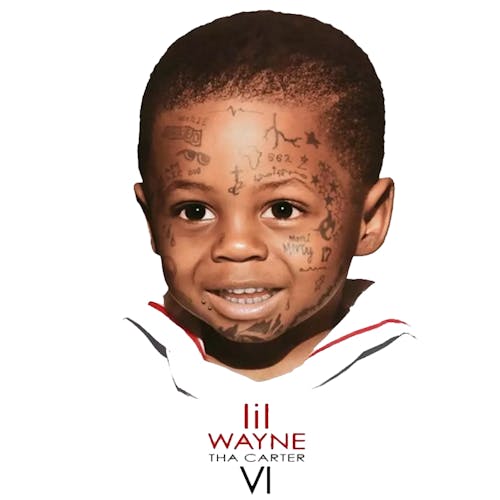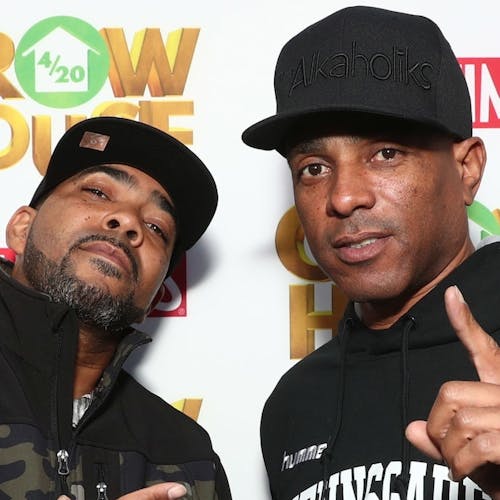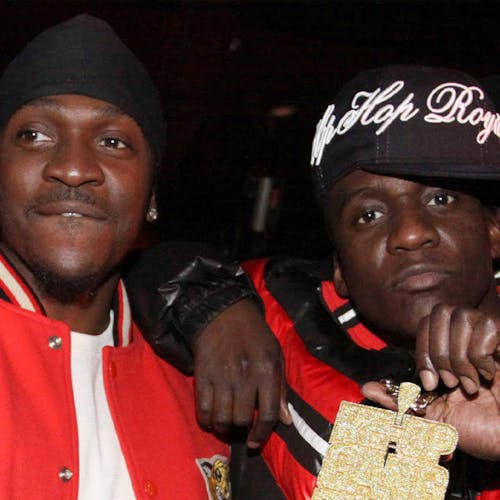"I'm hearing this stuff on the radio and I'm like, 'What is this?' So I'm buying up as much as I can, and then taking those records back to Arizona with me, and then playing them for people who have no clue what any of this is."
With the fresh imprint of Hip-Hop culture in the back of his mind, he struggled to embrace his inner New Yorker while in rural Arizona. First, he attempted to write graffiti, but the act of tagging desolate farmland didn't have the same thrill as say, tagging the 1-Train in NYC. Undeterred, he viewed the records that he brought with him as a focal point.
"I channeled it into music," he says. "But what I was doing then was taking these two worlds sonically and finding the common ground — which was drums. Drums were everything for me. But the interesting thing about those formative years for me when I wasn't in New York is that I was exposed then to all the music that was kind of Arizona; very rock/metal music with a little bit of country sprinkled in. So having in one side of my brain, Kurtis Blow, Run- DMC, and LL COOL J, and the other side of my brain, Black Sabbath, Pink Floyd, and Led Zeppelin, it was really this interesting balance of, 'How do I get these two things to speak to each other?'"
While this idea of "mash-ups" and "fusion" weren't yet buzzwords in the culture, a young Z-Trip saw that some of the cultural Hip-Hop icons were already dabbling in mixing different sonic worlds.
"I was exposed to Grandmaster Flash, Afrika Bambaataa, and Jazzy Jay, who were playing the DNA for all these Hip-Hop records. These obscure electronic things coupled with all the funk stuff — basically what became the Ultimate Breaks and Beats catalog. So all the heavy rock riffs, all the heavy funk stuff, all the disco records, anything that had breaks in it became, 'Oh, that's what the DNA of Hip-Hop is,' and they're just rapping over these breaks and these things. And so for me, that's what I really got attracted to. The rapping was a bonus part, but the DNA of what Hip-Hop was, I was like, 'Oh, there's some of that over here in Arizona that I could still work with, and really it's everywhere.' So I just started pulling from all kinds of music."






